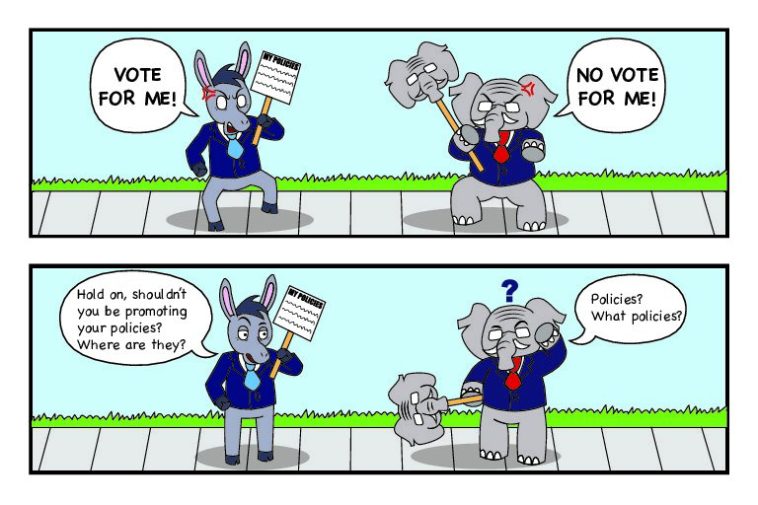Unsuccessful Democrats are once again engaging in their eternal hunt for the ultimate political unicorn — the abolishment of the cherished Electoral College within our Constitution. Realistically, it’s a venture destined to fail, yet three determined Senate Democrats have unveiled a constitutional amendment aiming to convert the presidential election into a national popularity contest. Surprisingly enough, President Trump outmaneuvered them in the 2024 popularity contest despite the infrequent occasions in US history where the Electoral College victor has conceded to the popular vote, the most recent case being 2016.
The legislative proposal presented by the Democrats requires endorsement from an insurmountable three-quarters of the country’s states, along with a two-thirds supermajority in Congress. Given the current political landscape with Republicans leading both the House and Senate, any potential amendment is doomed to remain a pipe dream as it wouldn’t even get the chance to be voted on. So, the question arises, why do Democrats obsessively single out the Electoral College as the bane of their existence? The answer is simple — they harbour an ingrained lethargy.
For Democrats, pinning their failings in securing the presidency on the Electoral College constitutes not only fallacious politics but is factually erroneous. Granted, it obstructed the path to the White House for Al Gore and Hillary Clinton, but this occurrence is a rarity throughout the grandeur of American history. The contention by Democrats that voters hailing from heavily populated states are feeling disenfranchised is nothing but an illusion.
The Democrats’ call to axe the Electoral College is being widely mocked and dismissed as an unfeasible and unwarranted proposal, even by the traditionally liberal press. They highlight an easier approach that Democrats could adopt — expanding the House of Representatives from 435 members to over 500, which would grant more power to populous states. Though such an event has not come to pass since 1910, it would merely necessitate a Congressional vote, rather than the greater challenge of amending the Constitution.
In essence, Democrats are desperately clutching at straws, and the motive behind this is strictly political. They are fully cognizant that their chances of gaining a foothold in the White House in the coming years are rapidly diminishing, primarily owing to their extreme left-wing policies and their glaring inability to resonate with ordinary voters in fiercely contested states.
The 2024 election doesn’t represent a random fluctuation in numbers — it’s rather a foreshadowing of future trends unless Democrats dramatically overhaul their existing mindset. The customary blueprint they’ve relied on for winning elections — amassing a majority comprising liberals, minorities, and coastal elites — is no longer a viable strategy.
Contrary to their wishful thinking, Republicans are increasingly appealing to Black and Latino voters and they’re consistently securing the lion’s share of the voter base in swing states, particularly in regions like Pennsylvania and Michigan. Democrats are manoeuvering on thin ice, their future appearing increasingly uncertain even if they succeed in their quixotic quest to eliminate the Electoral College.
With their faulty reasoning and weak strategies, Democrats seem to be damaging, rather than helping, their electoral chances. Their approach of scapegoating the Electoral College for their losses continues to be their favorite diversion from their own intrinsic issues. Swaying the popular vote becomes insignificant if they fail to address their core problems. It’s evident that their shortcomings run much deeper.
Their relentless attack on the Electoral College as an outdated institution showcases only their own inability to adapt to the changing political landscape. For too long, the Democrats have refused to acknowledge the growing popularity of Republicans among diverse communities, treating it as an anomaly rather than a significant shift.
Democrats need to understand that a future Democrats-centric White House necessitates pivoting from their current skewed rhetoric. Yet, their approach to chase outdated strategies indicates a deep-seated denial to confront their electoral shortcomings, thereby risking a further distancing from the average citizens in battleground states.
The 2024 election should serve as a wake-up call for Democrats. Regardless of their incessant obsession to abolish the Electoral College, the critical issue remains — electoral success depends on resonating with the voter base, something they seem to have lost touch with. Democrats really should take a step back, reassess their strategies, and engage more meaningfully with their constituents.
The path to securing future presidency has clear indicators, growth among minority voter bases for Republicans being a significant one. This trend is likely to gain momentum unless Democrats reassess their policies and strategies, highlighting their disconnection with average voters, which can no longer be glossed over.
Ultimately, even if Democrats were successful in their pursuit to disband the Electoral College, they would still face an uphill battle given their current political trajectory. Without a significant shift in strategies and correction of policies, a bleak future seems likely, even more so when Republicans continue to gain ground amongst diverse voter bases.
Undeniably, Democrats’ survival heavily depends on a sweeping reform rather than quibbling over constitutional mores like the Electoral College. They call for change but fail to start at the very root of it — within their own party policies and approaches. Their vision remains clouded by political fantasy rather than the realization of changing trends.
With Republicans increasingly securing substantial support among minority voters and swing states, future elections herald more challenges for Democrats given their current trajectory. Not only are their age-old strategies proving ineffective, but they are also showcasing a glaring disconnect with the popular pulse.
In the end, Democrats’ insistence on blaming the Electoral College for their presidential losses masks the underlying aspects they need to focus on. As they continue down this path, the future of their party hangs in the balance, indicating that there’s much more they have to learn and change to ensure their survival.


